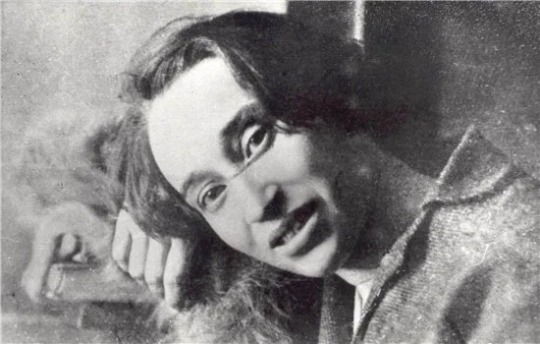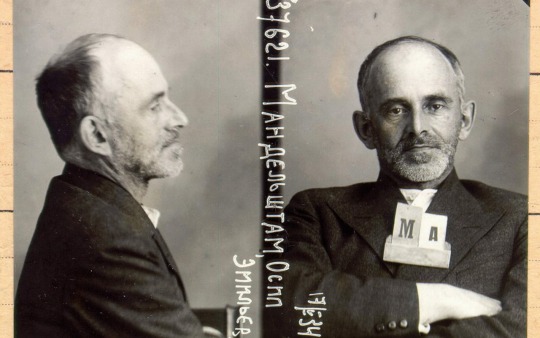#Osip Mandel’štam
Explore tagged Tumblr posts
Text
N.E. 02/2024 - "Dalla spiritualità della poesia alla sua inevitabile umanità. Dante, Beatrice e Francesca", saggio di Diletta Follacchio
Forse, nonostante la traduzione scialba e il commento pedestre e frettoloso, ha ricevuto il messaggio, ha sentito che lo riguarda, che riguarda tutti gli uomini in travaglio, e noi in specie. (P. Levi, Se questo è un uomo) Dante Alighieri si innamorò di Beatrice Portinari quando lui stava per compiere i nove anni e lei gli otto, come racconta lo scrittore nella Vita Nuova[1]. Doveva essere…

View On WordPress
#Alessandro Barbero#amore#Boccaccio#Commedia#cortese#critica#Dante#Dante Alighieri#Diletta Follacchio#Divina Commedia#donna#donna-angelo#Guido Cavalcanti#Guido Guinizzelli#medioevo#N.E. 02/2024#Osip Mandel’štam#Paolo e Francesca#Primo Levi#Rivista Nuova Euterpe#sacro#spiritualità#unione#Vita Nuova
0 notes
Text

Ho imparato la scienza degli addii / nel piangere notturno a testa nuda
(Osip Mandel’štam)
11 notes
·
View notes
Text
La creazione di forme, nella Commedia, trascende ogni nostra idea sulla scrittura e sulla composizione. Ritengo molto più corretto riconoscerne il principio motore nell’istinto. Le definizioni approssimative che propongo sono tutt’altro che un capriccio metaforico della mia fantasia. Qui si tratta di lottare per rendere rappresentabile una totalità, per dare concretezza visiva al concepibile. Soltanto la metafora può aiutarci a trovare un segno concreto per designare l’istinto che permetteva a Dante di accumulare le sue terzine e poi rifonderle, come metallo. Immaginiamo dunque che api dotate di un geniale intuito stereometrico abbiano lavorato alla costruzione di questo miriaedro reclutando nuove api, e altre ancora, a seconda del bisogno. Le api non perdono mai di vista l’insieme, e il loro lavoro, nelle diverse fasi, conosce gradi diversi di complessità. La collaborazione aumenta e si complica a mano a mano che progredisce la costruzione dei favi, attraverso i quali lo spazio sembra uscire da se stesso. L’analogia con le api è suggerita fra l’altro dallo stesso Dante nei tre versi iniziali del sedicesimo canto dell’Inferno.
Già era in loco onde s’udia ’l rimbombo
de l’acqua che cadea ne l’altro giro,
simile a quel che l’arnie fanno rombo..
Osip Mandel’štam "Conversazione su Dante"
5 notes
·
View notes
Text
“Lo dico in brutta copia, lo dico a bassa voce,
che non è ancora venuto il momento:
il gioco del cielo irresponsabile
si attinge con il sudore e l’esperienza”
— Osip Mandel’štam, 1937/03/09.
0 notes
Text
"Sei venuto da me in sogno ogni notte e io continuavo a chiederti cosa fosse successo e tu non rispondevi. L’ultimo sogno: sto comprando del cibo nel lurido bar di un lurido albergo. Con me ci sono dei completi sconosciuti e io, dopo aver comprato tutte queste cose, capisco che non so dove portarle, perché non so dove sei tu. Quando mi sono svegliata ho detto a Šura: Osja è morto."
Nadežda Mandel’štam
1 note
·
View note
Quote
Rimani quel che sei – schiuma, o Afrodite, tu, parola, rifluisci in musica, vergognati del cuore, o cuore, fuso con l’elemento primo della vita!
Osip Mandel’štam, da Cinquanta poesie
17 notes
·
View notes
Text
Non c’è nulla di cui serva parlare
non c’è nulla di cui occorra insegnare;
bella e ricolma di malinconia
è questa buia anima ferina:
non c’è nulla che lei voglia insegnare,
in nessun modo lei riesce a parlare,
e come un giovane delfino guizza
per l’universo e i suoi canuti abissi.
Osip Mandel’štam
4 notes
·
View notes
Text
E Schubert sull'acqua, e Mozart nel chiasso degli uccelli, e Goethe fischiettava lungo il sentiero serpeggiante, e Amleto che pensava a passi timorosi -tutti tastavano il polso della follia, in lei credendo. Forse il sussurro nacque prima delle labbra, e senza alberi mulinavano le foglie, e coloro ai quali consacriamo l'esperienza Prima dell'esperienza avevano già i tratti.
1 note
·
View note
Video
youtube
"Trovando un ferro di cavallo" di Osip Ėmil’evič Mandel’štam (1933)
#youtube#Trovando un ferro di cavallo poesia di Osip Ėmil’evič Mandel’štam (1933) letta (malissimo come sempre e senza curare minimamente la dizione!
0 notes
Photo

Non c’è nulla di cui serva parlare non c’è nulla che occorra insegnare; bella e ricolma di malinconia è questa buia anima ferina: non c’è nulla che lei voglia insegnare, in nessun modo lei riesce a parlare, e come un giovane delfino guizza per l’universo e i suoi canuti abissi. Osip Mandel’štam, Ottanta Poesie 1909
Mehdi Mokhtari
18 notes
·
View notes
Text

Stiamocene un po' in cucina assieme; l'aria è dolce di bianco cherosene; un coltello tagliente e una pagnotta... Se vuoi, prepara ben bene il fornello;
altrimenti raduna e intreccia corde: prima dell'alba fa’ una grande sporta; fuggiamo alla stazione, ad un binario. ove nessuno ci possa trovare.
.🦋.
🔸 Osip Mandel’štam
16 notes
·
View notes
Quote
Uno svegliava la moglie nel cuore della notte, le diceva: «Che fai dormi? Sì? Non dormire che ti detto una poesia».
[Osip Mandel’štam, dal Repertorio dei matti della letteratura russa, in preparazione, Paolo Nori]
51 notes
·
View notes
Text
Hope is the last to die: how Nadezhda Yakovlevna saved Osip Mandelshtam’s poems

If we can still read the Voronezh Notebooks, it’s because the courage and perseverance of Nadezhda Yakovlevna Mandelshtam (nee Khazina) who, for love, learnt by heart every single lines written by her husband, Osip Emilevich Mandelshtam, in order to transcribe them; who, for love, travelled throughout the whole Russia to run away from being arrested and so saving the few manuscripts left (which many of them were destroyed, got lost, or stolen by the Rudakovs), including during World War Two German invasion in Russia; who, for love, was able to spread Mandelshtamks poetry collections via Samizdat and managed to, after several attempts, make rehabilitate his husbands name. A love that in Nadezhda’s memoir seems imperfect but it’s stronger than Stalin’s regime, than censorship, than hunger; a love that overcame death. Love for Osip and his works, for culture, for freedom. It doesn’t seem a coincidence that her name is Nadezhda, which means “hope” in Russia and, indeed, she had never surrendered to fear because she hoped sooner or later her husband’s books could be published officially again. Nadezhda Yakovlevna collected and saved from war and secret police partly for Mandelshtam’s archive, hiding the manuscripts inside pans or sewing them to pillowcases, learning by heart her husband’s verses in the night of during her night shift in a textile factory (where she worked after Mandelshtam’s death, during her pilgrimage to run way from NKVD, and before getting a job as English language teacher). But Nadezhda didn’t only save the poems, she writes in her memoir: «I am now faced with a new task, and am not quite sure how to go about it. Earlier it was all so simple: my job was to preserve M.'s verse aod tell the story of what happened to us. The events concerned were outside our control»[1]. During Khrushchev’s era, she wrote three memoir books, Vospominaya, Vtoraya kniga e Kniga tretya (further a critical book on Osip’s poems, Kommentarii k stikham), first published in the US, the first under the title of Hope Against Hope in 1970, and the second one as Hope Abandoned, in 1974. In these memoirs she tells about her husband, the poetic work, the last years of Mandelshtam’s life with poignancy and much resolution, the horrible years of Stalinian Terror, nor missing to scold those intellectuals who committed to the socialist realism and bureaucrats but understanding the people, who ere in turn victims of fear and poverty. Her memoirs are «a scream of pain suffered for decades», pages that tell not only Nadezhda and Osip’s life together, but that also enlighten the abyss where they fell into. Those pages is a scream of hope after much silence and the continuation of Osip Mandelshtam’s testimony. Nadezhda moved her lips for him, when he couldn’t do this anymore.

Nadezhda Yakovlevna didn’t limit herself to this: she edited the Samizdat edition of the last Mandelshtam’s works, even though she wanted her husband’s poetry would have been published officially. She realised how huge was the circulation of this clandestine edition and she got surprised, because, despite the education system designed to affirm the socialist realism as the lonely critical canon, despite the censorship, the discrimination against a certain group of intellectuals and the destruction of the intelligentsia, «new readers come into being before our very eyes, but to understand how it happened is quite impossible. All one can say is that it came about against all the odds. The whole educational system was geared to preventing the appearance of such readers»[2]. Poetry can’t die because it’s life itself, because there will be always someone who manages to save and transcribed verses, including during terror, because it’s only in this way we can protect our Ego when everything is divided in indefinite “us” and “them”.


During Khrushchev era, Nadezhda understood something was changing and several names there weren’t published any longer, got rehabilitated. Osip Emileivich Mandelshtam’s name appeared only in samizdat and many didn’t dare to pronounce it yet; his name too should have been rehabilitated because he was arrested and condemned while he didn’t commit a crime, and so Nadezhda Yakovlevna, in the middle of the 50s, tried to get Mandelshtam rehabilitated, meeting Aleksey Surkov several times, poet and prominent figure of the Union of Soviet Writers. In 1956, Osip Mandelshtam will have been cleared from the accuse of “counterrevolutionary activities” of 1938, but only in 1987, during Gorbachëv’s administration, his name was completely rehabilitated and cleared from all the charges. Still through Surkov’s help, in 50s, Nadezhda tried to get published all Mandelshtam’s works officially. If Surkov was optimistic, many times the Party denied this idea, especially after the “Zhivago affaire”; Mandelshtam kept being a controversial name. Official publication of Mandelshtam’s work happened only in 90s. Nadezhda Mandelshtam died in 29th December 1980; after ten years her death, in 1990, the Voronezh Notebooks appeared in a complete and official edition in Moscow. «My odd experience, that as witness to poetic work, tells me it’s impossible to put a foot in the throat, it’s impossible to put a muzzle. It’s one of the most sublime human expression, bringer of universal armonies, and it can’t be anything else»[3].
Viviana Rizzo
Reference:
[1] MANDELSHTAM, N.J., Hope Abandoned, New York, Atheneum, 1974, p. 3
[2] Ivi, p. 9
[3] «La mia strana esperienza, quella di testimone del lavoro poetico, mi dice che è impossibile mettergli un piede sulla gola, impossibile infilargli la museruola. È una delle espressioni più sublimi dell'uomo, portatore di armonie universali, né altro può essere», in MANDEL’ŠTAM, N. J., L’epoca e i lupi. Memorie, with an introduction by Clarence Brown, trans. Ita by Giorgio Kraiski, Milano, Mondadori, 1971, p. 221
Sources:
1. FRISIA, A., “Coraggio e poesia. Osip e Nadežda Mandel’štam” in Gariwo: la foresta dei Giusti, web, 30.10.2014, p. 6, https://it.gariwo.net/dl/201410300557_30%20ottobre%20Osip%20e%20Nadezda.pdf (retrieved 18 November 2020)
2. KUVAKDIN, J.,, “Ulica Mandel’štama. Povest’ o stikakh”, in Bibilioteka Aleksandra Belousenko, web, 16.11.2004, https://web.archive.org/web/20071017204834/http://belolibrary.imwerden.de/books/Kuvaldin/kuvaldin_mandelshtam.htm# (retrieved in 20 November 2020)
3. MANDELSHTAM, N.J., Hope Abandoned, New York, Atheneum, 1974
4. MANDEL’ŠTAM, N. J., L’epoca e i lupi. Memorie, with an introduction by Clarence Brown, trans. Ita by Giorgio Kraiski, Milano, Mondadori, 1971
#Osip Mandelshtam#Nadezhda Mandelshtam#Russia#USSR#Russian literature#Russian poet#women’s history month#women#girl power#strong women#Stalin’s regime#Stalinism Terror#censorship#dictatorship#Stalin#poetry#poems#Voronezh Notebooks#writing#blogging
6 notes
·
View notes
Text
Un poeta russo, Osip Mandel’štam, scrive: «E il cielo, il cielo è il tuo Buonarroti».
1 note
·
View note
Quote
Stiamocene un po’ in cucina assieme, l’aria è dolce di bianco cherosene un coltello tagliente e una pagnotta… Se vuoi, prepara ben bene il fornello; altrimenti raduna e intreccia corde; prima dell’alba fa’ una grande sporta: fuggiamo a una stazione, ad un binario dove nessuno ci possa trovare
Osip Mandel’štam
15 notes
·
View notes
Text

È più allentato l’alveare di neve,
il cristallo più trasparente della finestra
e il velo turchese
con noncuranza è buttato sulla sedia.
Il tessuto, ebbro di se stesso,
carezzevole per le lusinghe della luce,
assapora l’estate
come non toccato dall’inverno.
E se nei diamanti di ghiaccio
scorre il gelo dell’eternità,
qui c’è il palpito delle libellule
presto-in-vita, occhiazzurri…
Osip Ėmil’evič Mandel’štam
4 notes
·
View notes